Dreaming of swapping your everyday routine for an adventure Down Under? A Working Holiday Australia experience might just be the life-changing opportunity you’ve been waiting for. Whether you’re looking to explore stunning landscapes, meet people from all over the world, or gain international work experience, Australia’s Working Holiday program offers it all. But before you pack your bags and book that flight, there are a few key things you need to know—especially if you’re planning your trip for 2025.
In this blog post, we’ll dive into everything you need to know about the Working Holiday Australia program, from visa requirements and job opportunities to tips on making the most of your time in this incredible country. Let’s get started!
Working Holiday Australia
Table of contents
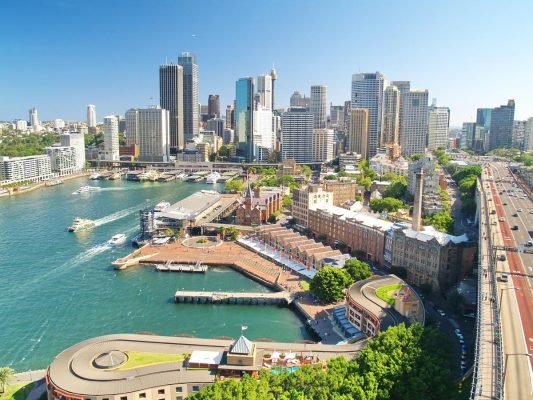
Disclosure: Some links in this post are affiliate links. If you make a purchase through one of these links, we may earn a small commission (at no extra cost to you!). We're very grateful when you use our links to make a purchase:-).
What is the Working Holiday Australia Program?
The Working Holiday Australia program is a unique visa initiative designed to encourage cultural exchange and provide young adults with the opportunity to live, work, and travel in Australia for up to 12 months (or longer if extended). It’s one of the most popular ways for people aged 18 to 30 (or 35 for some nationalities) to explore Australia while funding their travels through temporary work. Here’s a detailed breakdown of what the program entails:
1. Purpose of the Program
The Working Holiday Australia program aims to:
- Promote cultural exchange between Australia and participating countries.
- Allow young people to experience life in Australia while supplementing their travel funds through work.
- Provide Australians with the opportunity to learn about other cultures through interactions with international visitors.
2. Visa Types
There are two main types of Working Holiday visas for Australia:
- Subclass 417 (Working Holiday Visa): Available to passport holders from eligible countries such as the UK, Canada, France, Germany, and Ireland.
- Subclass 462 (Work and Holiday Visa): Available to passport holders from countries like the USA, Spain, Argentina, Chile, and Malaysia.
Both visas allow you to work and travel in Australia for up to 12 months, with the option to extend for a second or third year under certain conditions.
3. Eligibility Requirements
To qualify for the Working Holiday Australia program, you must:
- Be aged 18 to 30 (or 18 to 35 for some countries, such as Canada and Ireland).
- Hold a valid passport from an eligible country.
- Have sufficient funds to support yourself initially (usually around AUD $5,000).
- Meet health and character requirements (e.g., no significant criminal record).
- Not have previously entered Australia on a Working Holiday visa (unless applying for a second or third year).
4. Work and Travel Flexibility
The Working Holiday Australia visa allows you to:
- Work: You can take on temporary jobs to fund your travels. There are no restrictions on the type of work, but you can only work for the same employer for up to 6 months (unless you’re applying for a second-year visa and need to complete specified work).
- Study: You can enroll in short-term courses or training programs for up to 4 months.
- Travel: Explore Australia’s iconic destinations, from the Great Barrier Reef to the Outback, while balancing work and leisure.
5. Extending Your Stay
One of the most exciting aspects of the Working Holiday Australia program is the ability to extend your stay:
- Second-Year Visa: To qualify, you must complete 3 months (88 days) of specified work, such as farming, fishing, or construction, in regional Australia during your first year.
- Third-Year Visa: If you complete an additional 6 months of specified work during your second year, you may be eligible for a third-year visa.
6. Popular Jobs for Working Holiday Makers
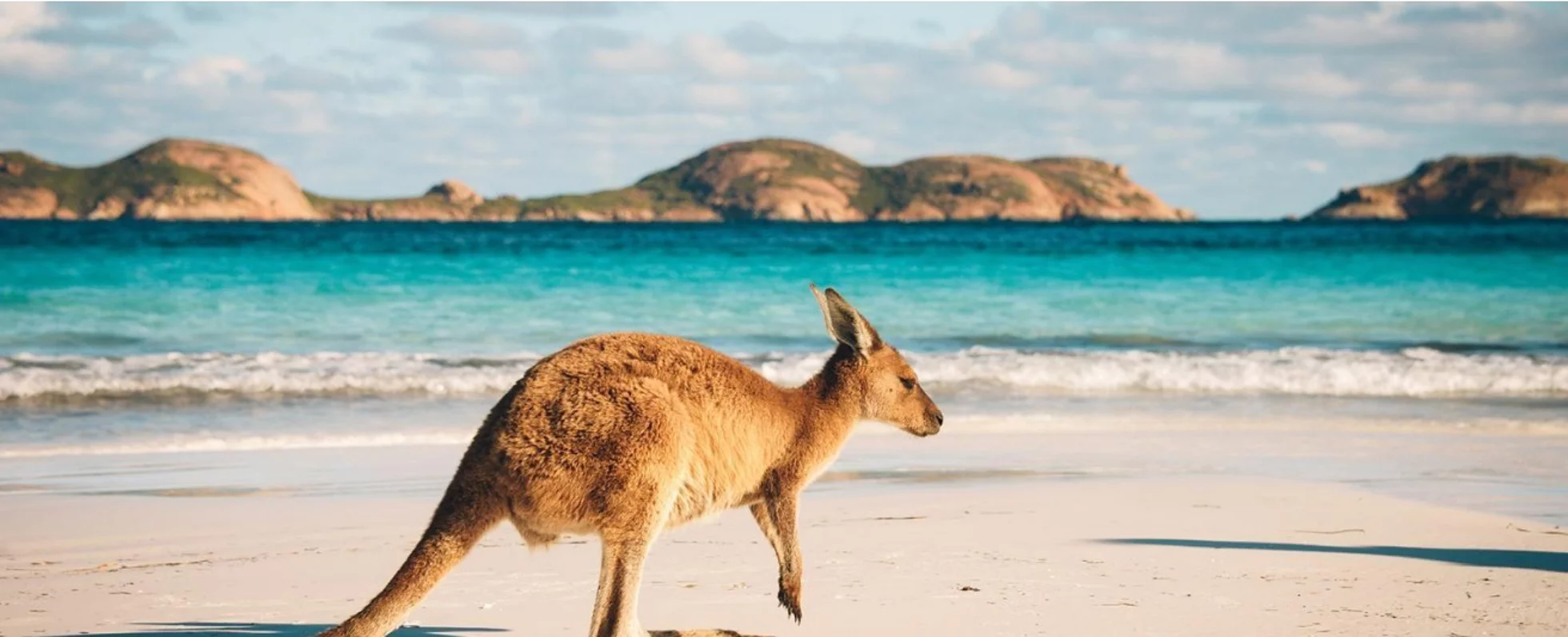
Many travelers use the Working Holiday Australia program to gain work experience while funding their adventures. Common jobs include:
- Hospitality: Working in cafes, bars, or restaurants.
- Farming and Fruit Picking: A popular option for those seeking a second-year visa.
- Retail: Jobs in shops, supermarkets, or malls.
- Tourism: Roles in hotels, tour companies, or travel agencies.
- Office Work: Temporary roles in administration, marketing, or customer service.
7. Benefits of the Program
The Working Holiday Australia program offers numerous benefits:
- Cultural Exchange: Immerse yourself in Australian culture while sharing your own.
- Travel Opportunities: Explore Australia’s diverse landscapes, from beaches to rainforests.
- Work Experience: Gain international work experience to boost your resume.
- Personal Growth: Develop independence, adaptability, and problem-solving skills.
8. Challenges to Consider
While the program is incredibly rewarding, it’s important to be aware of potential challenges:
- High Cost of Living: Australia can be expensive, so budgeting is crucial.
- Job Competition: In popular cities like Sydney and Melbourne, finding work can be competitive.
- Distance: Australia is vast, so travel between destinations can be time-consuming and costly.
9. How to Apply
Applying for the Working Holiday Australia visa is straightforward:
- Check your eligibility on the Australian Government’s Department of Home Affairs website.
- Gather required documents (passport, proof of funds, etc.).
- Complete the online application and pay the visa fee (around AUD $635 as of 2024).
- Wait for approval, which usually takes a few weeks.
10. Why Choose the Working Holiday Australia Program?
The Working Holiday Australia program is more than just a visa—it’s a life-changing experience. Whether you’re looking to explore new horizons, gain work experience, or simply live your dream, this program offers endless opportunities. With its stunning landscapes, friendly locals, and vibrant culture, Australia is the perfect destination for your next adventure.
Things to Know About Working Holiday Australia (2025)
1. Eligibility Requirements
To apply for the Working Holiday Australia visa (subclass 417 or 462, depending on your nationality), you’ll need to meet the following criteria:
- Be aged between 18 and 30 (or 35 for some countries).
- Hold a passport from an eligible country.
- Have sufficient funds to support yourself initially (usually around AUD $5,000).
- Meet health and character requirements.
- Not have previously entered Australia on a Working Holiday visa (unless applying for a second or third year).
2. How to Apply
The application process for the Working Holiday Australia visa is straightforward and done online through the Australian Government’s Department of Home Affairs website. Make sure to:
- Check your eligibility.
- Gather necessary documents (passport, proof of funds, etc.).
- Pay the visa fee (around AUD $635 as of 2024).
- Submit your application and wait for approval, which usually takes a few weeks.
3. Job Opportunities
One of the best parts of the Working Holiday Australia program is the chance to work while you travel. Popular job options include:
- Hospitality (cafes, bars, restaurants).
- Farming and fruit picking (often required for a second-year visa).
- Retail and tourism.
- Office or remote work (if you have specific skills).
Pro tip: Start looking for jobs before you arrive, and consider cities like Sydney, Melbourne, or Brisbane for more opportunities.
4. Cost of Living
Australia is known for its high cost of living, so budgeting is crucial. On average, you’ll need:
- AUD 150–150–300 per week for shared accommodation.
- AUD 50–50–100 per week for groceries.
- AUD 30–30–50 per week for public transport.
Saving money by cooking at home, using public transport, and staying in hostels or shared housing can help stretch your budget.
5. Extending Your Stay
If you fall in love with Australia (and let’s be honest, you probably will), you can apply for a second or even third-year Working Holiday Australia visa. To qualify, you’ll need to complete specified work, such as farm work or regional employment, during your first year.
Tips for Making the Most of Your Working Holiday Australia Experience
1. Plan but Stay Flexible
When embarking on a Working Holiday Australia adventure, one of the most valuable pieces of advice you’ll hear is to “plan but stay flexible.” This approach allows you to make the most of your experience while leaving room for spontaneity and unexpected opportunities. Here’s a deeper dive into what this means and how to strike the perfect balance between planning and flexibility:
Why Planning is Important
Planning ensures you have a solid foundation for your trip, helping you avoid unnecessary stress and setbacks. Here’s why it’s essential:
- Visa and Documentation: Ensure your Working Holiday Australia visa is approved and all necessary documents are in order.
- Budgeting: Calculate your initial funds, estimate living costs, and plan how much you need to work and save.
- Accommodation: Research and book your first few nights of accommodation to avoid arriving without a place to stay.
- Job Preparation: Update your resume, research job opportunities, and connect with potential employers or recruitment agencies.
- Travel Goals: Make a list of must-see destinations and activities to ensure you don’t miss out on key experiences.
Why Flexibility is Key
While planning is crucial, staying flexible is equally important. Here’s why:
- Unexpected Opportunities: You might meet people who invite you on a road trip or hear about a job opportunity in a different city.
- Changing Interests: Your priorities might shift as you explore Australia. For example, you might fall in love with a particular region and decide to stay longer.
- Weather and Seasons: Australia’s climate varies greatly, so being flexible allows you to adapt your plans based on the weather.
- Work Availability: Job opportunities might arise in unexpected places, and being open to relocation can lead to better experiences.
How to Plan but Stay Flexible
Here are some practical tips to help you strike the right balance:
1. Have a Rough Itinerary
- Start with a Plan: Outline your first few weeks, including your arrival city, accommodation, and initial job search.
- Leave Room for Changes: Avoid over-scheduling. For example, instead of booking all your accommodation in advance, book the first week and decide as you go.
2. Set Priorities, Not Schedules
- Must-Do Activities: Identify your top priorities (e.g., visiting the Great Barrier Reef, exploring Sydney, or working in regional areas for a second-year visa).
- Flexible Timeline: Don’t assign specific dates to every activity. Instead, create a bucket list and tick things off as you go.
3. Budget Wisely
- Initial Savings: Ensure you have enough funds to cover your first few weeks (around AUD $5,000 is recommended).
- Emergency Fund: Set aside some money for unexpected expenses or spontaneous trips.
4. Be Open to New Experiences
- Say Yes More Often: If someone invites you on a weekend getaway or suggests a job opportunity, consider saying yes—it could lead to unforgettable memories.
- Embrace the Unknown: Some of the best experiences come from unplanned adventures, like stumbling upon a hidden beach or joining a local festival.
5. Stay Connected
- Join Communities: Join Working Holiday Australia Facebook groups, attend meetups, and connect with other travelers. They can offer advice, job leads, and companionship.
- Use Apps: Download apps like Gumtree (for jobs and accommodation), Meetup (for social events), and Maps.me (for offline navigation).
6. Adapt to Work Opportunities
- Be Willing to Move: If you hear about a great job in another city or region, don’t hesitate to relocate.
- Diversify Your Skills: Be open to trying different types of work, from hospitality to farming. It’s all part of the adventure!
7. Embrace the Journey
- Don’t Stress the Small Stuff: Delays, changes, and challenges are part of the experience. Stay positive and focus on the bigger picture.
- Enjoy the Process: Remember, the Working Holiday Australia program is about growth, exploration, and creating memories. Don’t get too caught up in sticking to a rigid plan.
The Working Holiday Australia program is all about balance. While planning ensures you’re prepared and organized, staying flexible allows you to embrace the unexpected and make the most of every opportunity. By combining these two approaches, you’ll create a truly unforgettable adventure that’s both structured and spontaneous.
So, as you prepare for your Working Holiday Australia journey, remember: plan enough to feel secure, but stay flexible enough to say yes to the magic of the unknown
2. Network and Make Friends
One of the most rewarding aspects of a Working Holiday Australia experience is the opportunity to meet people from all over the world. Building a network and making friends not only enhances your journey but also opens doors to new opportunities, shared adventures, and lifelong connections. Here’s a detailed guide on how to network and make friends during your time in Australia:
Why Networking and Making Friends is Important
- Companionship: Traveling can sometimes feel lonely, especially in a new country. Friends make the experience more enjoyable and fulfilling.
- Shared Experiences: Exploring Australia with others creates unforgettable memories and makes adventures more fun.
- Job Opportunities: Networking can lead to job referrals, tips on where to work, and even shared accommodation options.
- Cultural Exchange: Meeting people from different backgrounds broadens your perspective and enriches your understanding of the world.
- Support System: Friends can offer advice, help you navigate challenges, and provide emotional support when you’re far from home.
How to Network and Make Friends in Australia
1. Join Online Communities
Before you even arrive in Australia, start connecting with people through online platforms:
- Facebook Groups: Join Working Holiday Australia groups like “Backpacker Jobs in Australia” or “Working Holiday Makers in Australia.” These groups are great for job leads, accommodation tips, and meeting fellow travelers.
- Reddit: Subreddits like r/WorkingHoliday and r/Australia are helpful for advice and connecting with others.
- Meetup Apps: Apps like Meetup or Backpackr can help you find events and connect with like-minded travelers.
2. Stay in Social Accommodation
Choosing the right accommodation can make a huge difference in meeting people:
- Hostels: Hostels are a hub for travelers. Look for ones with common areas, group activities, and a social atmosphere.
- Shared Housing: Websites like Flatmates.com.au or Gumtree can help you find shared housing with other travelers or locals.
- Work Exchange Programs: Platforms like Workaway or WWOOFing often connect you with other travelers working in the same place.
3. Attend Social Events and Meetups
Australia has a vibrant social scene for travelers:
- Pub Nights and BBQs: Many hostels and expat groups organize regular social events.
- Language Exchanges: Join language exchange meetups to practice English or other languages while meeting new people.
- Festivals and Events: Attend local festivals, markets, or cultural events to mingle with locals and travelers alike.
4. Take Group Tours or Activities
Participating in group activities is a fantastic way to bond with others:
- Day Tours: Join tours to popular destinations like the Great Barrier Reef, Uluru, or the Great Ocean Road.
- Adventure Activities: Try group activities like surfing lessons, hiking trips, or scuba diving courses.
- Volunteer: Volunteering for local causes or events can connect you with people who share your interests.
5. Work and Study Alongside Others
Your job or studies can be a great way to meet people:
- Workplace Friends: Bond with coworkers over shared experiences and after-work activities.
- Study Groups: If you take a short course, join study groups or attend class social events.
- Regional Work: If you’re doing farm work or regional jobs, you’ll likely meet other travelers in the same situation.
6. Be Open and Approachable
Making friends often starts with a simple hello:
- Start Conversations: Don’t be shy to introduce yourself to fellow travelers at hostels, on tours, or at events.
- Join In: If you see a group playing games or planning an outing, ask if you can join.
- Share Your Story: People love hearing about where you’re from and your travel experiences.
7. Use Social Media and Apps
Leverage technology to stay connected:
- Instagram and Facebook: Follow travel accounts and join groups to stay updated on events and meetups.
- Travel Apps: Apps like Travello or Backpackr are designed to connect travelers in the same area.
8. Be a Good Friend
Building lasting friendships requires effort:
- Stay in Touch: Exchange contact information and keep in touch with people you meet.
- Be Supportive: Offer help or advice when others need it, and they’ll likely return the favor.
- Plan Meetups: If you’re traveling to a new city, reach out to friends you’ve met along the way.
Tips for Building a Strong Network
- Be Genuine: People appreciate authenticity. Be yourself and show genuine interest in others.
- Step Out of Your Comfort Zone: Don’t be afraid to initiate conversations or join new activities.
- Be Proactive: Attend events, join groups, and put yourself out there.
- Follow Up: If you meet someone interesting, suggest meeting up for coffee or joining an activity together.
Real-Life Scenarios
Here are some examples of how networking and making friends can enhance your Working Holiday Australia experience:
- Job Referrals: A friend you met at a hostel tells you about a job opening at their workplace, helping you secure employment quickly.
- Shared Adventures: You meet a group of travelers who invite you on a road trip along the East Coast, creating unforgettable memories.
- Cultural Exchange: A local friend introduces you to Australian traditions, like a backyard BBQ or Anzac Day celebrations.
- Support System: When you’re feeling homesick, your friends are there to cheer you up and remind you why you’re on this adventure.
Networking and making friends is one of the most rewarding aspects of a Working Holiday Australia experience. Not only does it make your journey more enjoyable, but it also opens doors to new opportunities, shared adventures, and lifelong connections. So, put yourself out there, be open to new experiences, and embrace the incredible people you’ll meet along the way.
Remember, the friends you make during your Working Holiday Australia adventure could become your global family.
3. Explore Beyond the Cities
When you think of Australia, iconic cities like Sydney, Melbourne, and Brisbane often come to mind. But the true magic of a Working Holiday Australia experience lies beyond the urban hustle and bustle. Australia’s vast and diverse landscapes offer endless opportunities for adventure, discovery, and connection with nature. Here’s why and how you should explore beyond the cities during your time in Australia:
Why Explore Beyond the Cities?
- Natural Beauty: Australia is home to some of the world’s most stunning natural wonders, from pristine beaches to rugged outback landscapes.
- Unique Experiences: Regional areas offer activities you won’t find in the cities, like farm work, wildlife encounters, and stargazing in the desert.
- Cultural Insights: Discover Australia’s rich Indigenous heritage and learn about the country’s history and traditions.
- Escape the Crowds: Cities can be busy and expensive. Exploring regional areas allows you to enjoy a slower pace of life and connect with nature.
- Second-Year Visa Opportunities: Working in regional areas (e.g., farming or tourism) can qualify you for a second-year Working Holiday Australia visa.
How to Explore Beyond the Cities
1. Research Regional Destinations
Australia’s regional areas are incredibly diverse. Here are some must-visit regions:
- The Outback: Experience the iconic red deserts, Uluru, and the remote beauty of the Northern Territory.
- Tropical North Queensland: Explore the Daintree Rainforest, Great Barrier Reef, and Cairns.
- The Whitsundays: Sail around pristine islands and relax on white-sand beaches.
- Tasmania: Discover rugged mountains, lush forests, and charming small towns.
- Western Australia: Visit the stunning coastline of Margaret River, the Pinnacles Desert, and Broome.
- South Australia: Explore the wine regions of Barossa Valley and the rugged beauty of Kangaroo Island.
2. Plan Your Transport
Getting around regional Australia requires some planning:
- Rent a Car or Campervan: This gives you the freedom to explore at your own pace. Websites like Jucy or Britz offer affordable options.
- Public Transport: While less frequent than in cities, buses and trains can take you to some regional areas.
- Tours: Join guided tours for hassle-free exploration of remote areas like the Outback or the Great Ocean Road.
3. Find Regional Work
Working in regional areas not only funds your travels but also qualifies you for a second-year visa:
- Farm Work: Fruit picking, packing, or farm labor is a popular option. Check websites like Harvest Trail or Gumtree for job listings.
- Tourism: Work in hotels, resorts, or tour companies in popular regional destinations.
- Hospitality: Cafes, bars, and restaurants in tourist areas often hire temporary staff.
4. Embrace Outdoor Activities
Regional Australia is a playground for outdoor enthusiasts:
- Hiking: Explore national parks like Blue Mountains, Grampians, or Cradle Mountain.
- Snorkeling and Diving: Discover the Great Barrier Reef or Ningaloo Reef in Western Australia.
- Wildlife Encounters: Visit Kangaroo Island, Phillip Island, or the Daintree Rainforest to see unique Australian wildlife.
- Camping: Spend nights under the stars in Australia’s many campgrounds and national parks.
5. Connect with Local Communities
Regional areas offer a chance to experience authentic Australian culture:
- Small Towns: Visit charming towns like Byron Bay, Port Douglas, or Alice Springs.
- Indigenous Experiences: Learn about Aboriginal culture through guided tours, art galleries, and cultural centers.
- Festivals and Events: Attend local events like farmers’ markets, country fairs, or music festivals.
6. Be Prepared
Exploring regional Australia requires some preparation:
- Pack Appropriately: Bring sturdy shoes, sunscreen, insect repellent, and weather-appropriate clothing.
- Stay Safe: Let someone know your travel plans, especially if you’re heading to remote areas.
- Check Connectivity: Some regional areas have limited phone and internet coverage, so plan accordingly.
Top Regional Destinations to Explore

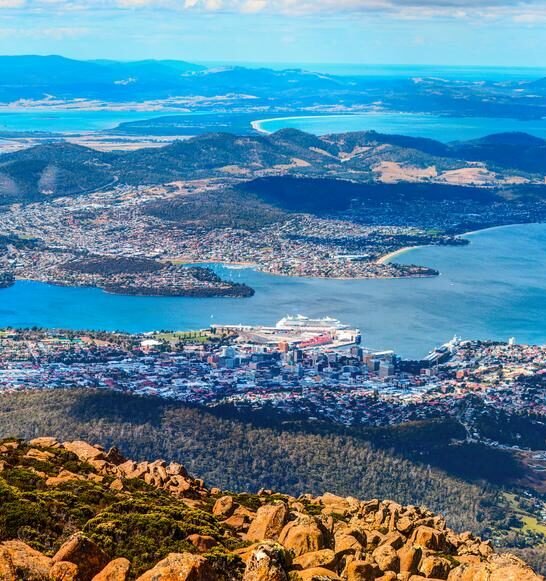

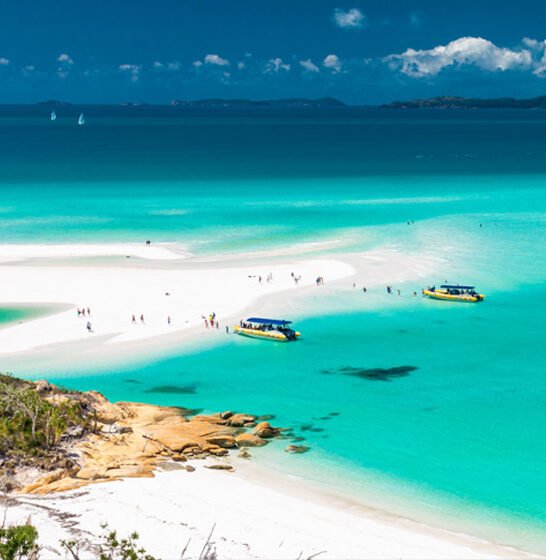
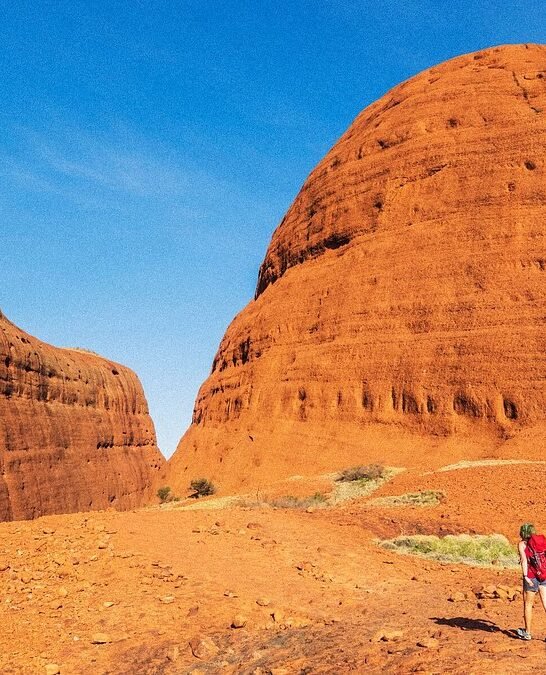
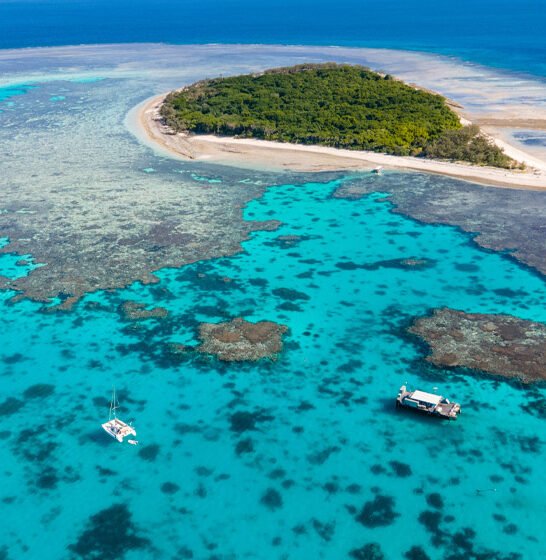
1. The Great Barrier Reef (Queensland)
- Why Go: Snorkel or dive in one of the world’s most famous natural wonders.
- What to Do: Visit Cairns or Airlie Beach as a base for reef tours.
2. Uluru-Kata Tjuta National Park (Northern Territory)
- Why Go: Witness the iconic Uluru and learn about Indigenous culture.
- What to Do: Join a guided tour, watch the sunset over Uluru, and explore Kata Tjuta.
3. The Whitsunday Islands (Queensland)
- Why Go: Relax on pristine beaches and sail around stunning islands.
- What to Do: Book a sailing tour or stay on Hamilton Island.
4. The Kimberley (Western Australia)
- Why Go: Experience rugged landscapes, waterfalls, and ancient rock formations.
- What to Do: Visit Broome, explore the Bungle Bungle Range, and take a scenic flight.
5. Tasmania
- Why Go: Discover untouched wilderness, charming towns, and world-class hiking trails.
- What to Do: Explore Cradle Mountain, Wineglass Bay, and Hobart’s MONA museum.
6. The Great Ocean Road (Victoria)
- Why Go: Drive along one of the world’s most scenic coastal routes.
- What to Do: Visit the Twelve Apostles, Loch Ard Gorge, and the Otway Rainforest.
While Australia’s cities are vibrant and exciting, the real heart of the country lies beyond the urban centers. Exploring regional areas during your Working Holiday Australia adventure allows you to connect with nature, experience authentic Australian culture, and create memories that will last a lifetime. So, pack your bags, hit the road, and discover the incredible beauty of Australia’s regional gems.
4. Save for Travel
One of the biggest challenges of a Working Holiday Australia experience is managing your finances while balancing work and travel. Saving for travel is essential to ensure you can explore the country’s incredible destinations without constantly worrying about money. Here’s a detailed guide on how to save for travel during your time in Australia:
Why Saving for Travel is Important
- Explore More: Having savings allows you to visit bucket-list destinations like the Great Barrier Reef, Uluru, or the Whitsunday Islands.
- Reduce Stress: Knowing you have a financial cushion makes your travels more enjoyable and less stressful.
- Unexpected Opportunities: Savings give you the flexibility to seize spontaneous opportunities, like joining a last-minute tour or extending your stay in a beautiful location.
- Emergency Fund: Life on the road can be unpredictable. Savings can cover unexpected expenses, like medical bills or transportation delays.
How to Save for Travel in Australia
1. Set a Budget
Creating a budget is the first step to saving for travel:
- Track Your Expenses: Use apps like Trail Wallet or Pocketbook to monitor your spending.
- Categorize Expenses: Divide your expenses into categories like accommodation, food, transport, and entertainment.
- Set Savings Goals: Determine how much you need to save for specific trips or activities and set a timeline.
2. Prioritize Your Spending
Cutting back on non-essentials can free up money for travel:
- Cook at Home: Eating out can be expensive. Cook meals at home or prepare packed lunches.
- Limit Nights Out: Enjoy the occasional night out but avoid overspending on drinks and entertainment.
- Use Public Transport: Save money by using buses, trains, or bikes instead of taxis or rideshares.
3. Find Affordable Accommodation
Accommodation is one of the biggest expenses. Here’s how to save:
- Stay in Hostels: Hostels are budget-friendly and offer a social atmosphere.
- Share Housing: Rent a room in a shared house or apartment to split costs.
- Work for Accommodation: Platforms like Workaway or HelpX allow you to exchange work for free accommodation.
4. Work Strategically
Earning money is key to saving for travel:
- Take on Multiple Jobs: Combine part-time jobs, casual work, or freelance gigs to maximize your income.
- Regional Work: Farm work or regional jobs often include accommodation and meals, helping you save more.
- Save a Percentage: Aim to save a portion of every paycheck (e.g., 20-30%) for travel.
5. Travel Smart
Stretch your travel budget with these tips:
- Travel Off-Peak: Visit popular destinations during the shoulder season to save on accommodation and tours.
- Use Discounts: Look for student discounts, group rates, or last-minute deals on tours and activities.
- Pack Light: Avoid extra baggage fees by packing only the essentials.
6. Open a Savings Account
Having a dedicated savings account can help you stay on track:
- High-Interest Accounts: Choose a savings account with a high interest rate to grow your money faster.
- Automatic Transfers: Set up automatic transfers to your savings account each payday.
- Separate Accounts: Keep your savings separate from your everyday spending account to avoid temptation.
7. Plan Your Trips in Advance
Planning ahead can save you money:
- Book Early: Flights, tours, and accommodation are often cheaper when booked in advance.
- Research Free Activities: Many destinations offer free or low-cost activities, like hiking, visiting beaches, or exploring local markets.
- Create an Itinerary: Plan your trips to minimize transportation costs and maximize your time.
Tips for Staying Motivated
- Visualize Your Goals: Keep a list or vision board of the destinations and experiences you’re saving for.
- Celebrate Milestones: Reward yourself when you reach savings goals, like treating yourself to a small splurge.
- Stay Accountable: Share your goals with friends or fellow travelers who can encourage and support you.
Real-Life Scenarios
Here are some examples of how saving for travel can enhance your Working Holiday Australia experience:
- Bucket-List Trip: You save enough to visit Uluru and witness the stunning sunrise over the iconic rock.
- Spontaneous Adventure: With savings in hand, you join a last-minute sailing trip around the Whitsunday Islands.
- Extended Stay: You extend your time in Byron Bay to enjoy the laid-back vibe and beautiful beaches.
- Emergency Fund: When your car breaks down in the Outback, your savings cover the repair costs without derailing your plans.
Saving for travel is a crucial part of making the most of your Working Holiday Australia experience. By setting a budget, prioritizing your spending, and working strategically, you can build a travel fund that allows you to explore Australia’s incredible destinations and create unforgettable memories. Remember, every dollar saved brings you one step closer to your next adventure.
Why 2025 is the Perfect Time for a Working Holiday Australia
2025 is shaping up to be an exciting year for the Working Holiday Australia program. With borders fully open and a growing demand for workers in various industries, it’s an ideal time to apply. Plus, Australia’s post-pandemic recovery means more opportunities for travelers to find work and explore the country safely.
Working Holiday Australia: in Coclusion
A Working Holiday Australia experience is more than just a trip—it’s a chance to grow, learn, and create memories that will last a lifetime. Whether you’re saving up for your next adventure, gaining international work experience, or simply living your dream, Australia offers something for everyone.
So, what are you waiting for? Start planning your Working Holiday Australia adventure for 2025 today! And if you have any questions or need tips, feel free to reach out—we’re here to help you make the most of your journey.
f you have any questions, leave a comment below or send me a message!
